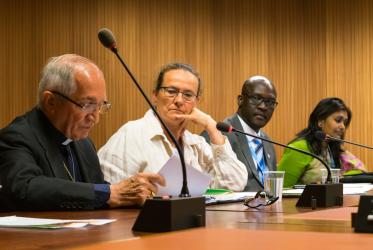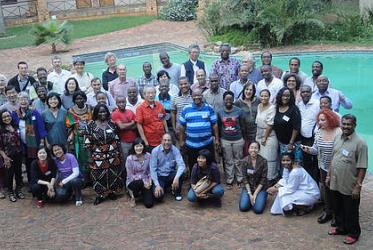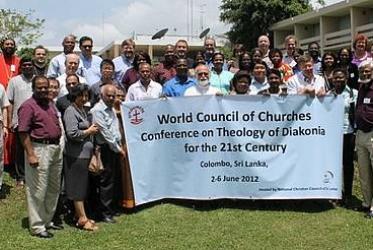Displaying 61 - 80 of 109
Reclaiming our humanity
23 June 2015
Indigenous faith leaders reflect on resilience and climate change
23 September 2014
“Churches will have to move”
05 July 2014
Theologians and activists reflect on WCC assembly theme
06 December 2012
WCC adopts statements on contemporary public issues
12 September 2012
"Transformative spirituality is a breath of fire"
23 March 2012
CWME invokes new understanding of mission and evangelism
22 March 2012









